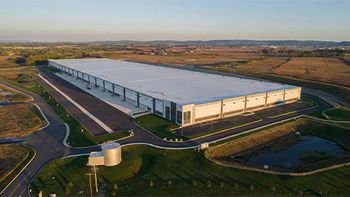
The new normal in pharma and clinical trial logistics
Service providers are resetting their business practices to cope with the pandemic
With infection rates from Covid-19 peaking in parts of the developed world, the global pharma development and delivery industry is now settling in for what will be a long period of heightened activity and modified practices. All this is occurring at a time when air carriers have drastically cut back passenger services (thus reducing the availability of cargo bellies in passenger flights, even as they have converting some of their flights to cargo-only), and the ocean freight business is down by about a third due to cargo ship withdrawals.
In commercial distribution in the US, there have been reports, mostly from health systems, of looming shortages of essential medicines, especially those used in conjunction with patients going onto ventilators. (The PPE and ventilator situation, of course, has been critical throughout the pandemic, and remains so.) Healthcare Ready, the collaborative effort of life sciences trade associations and some life sciences companies, opened its Rx Open information service, which lists open-for-business pharmacies (registered to the service) for all 50 states for the first time; normally, this is done regionally in response to a natural disaster. With support from the AmerisourceBergen Foudation, dialysis centers have been included as well.
There’s a feast-and-famine dynamic going on in the clinical research arena: on the one hand, multiple new studies have been launched for treatments or preventives for Covid-19; on the other, routine clinical trial management has been disrupted, with some trials put on hold as patient recruitment falters. Both UPS’ subsidiary, Marken, and AmerisourceBergen’s, World Courier, continue to operate globally. Both provide updates on how trial materials are moving through customs or being delivered locally. Both have taken on substantial responsibilities for making direct-to-patient deliveries of either trial materials or commercial specialty pharmaceuticals.
“There’s been a huge uptick in activity,” says Dan Bell, SVP, Americas region, at Marken. The company has been shifting around shipments (including making wider use of its parent, UPS, for air cargo), and making use of ground delivery (or pickup, for items like test swabs).
Cryoport, developers of cryogenic parcel packaging for cellular and genetic therapies (CGTs; the company is also providing conventional 2-8°C refrigerated services) says that it is currently involved in several of the trails being conducted for Covid-10, including;
• Celularity – CYNK001, a “natural killer” (NK) cell therapy to boost the immune system’s disease-fighting response
• Mesoblast – Remestemcel-L, an allogeneic mesenchymal stem cell (MSC) product candidate addressing acute respiratory distress syndrome (ARDS)
• Capricor – CAP1002, a novel cell therapy to patients with advanced COVID-19 under the compassionate use pathway for the treatment or attenuation of ARDS pneumonia
• Athersys – MultiStem, an adult-derived "off-the-shelf" stem cell product for ARDS
• Heat Biologics – GP96, a platform that activates the human immune system.
There are many non-CGT therapies at play as well; most famously, the hydrochloroquine touted by President Trump with little clinical evidence. A trial of the drug conducted in Brazil was halted due to cardiovascular risks to patients, according to news reports; other testing is ongoing. Multiple “compassionate use” exercises are being conducted (whether or not they involve the 2018
Newsletter
Stay ahead in the life sciences industry with Pharmaceutical Commerce, the latest news, trends, and strategies in drug distribution, commercialization, and market access.




